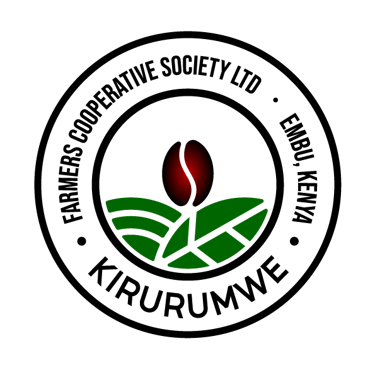Elevating Sustainable Agriculture: Advances in Eco-Friendly Farming Training at Kirurumwe Farmers Cooperative Society
BLOG POST
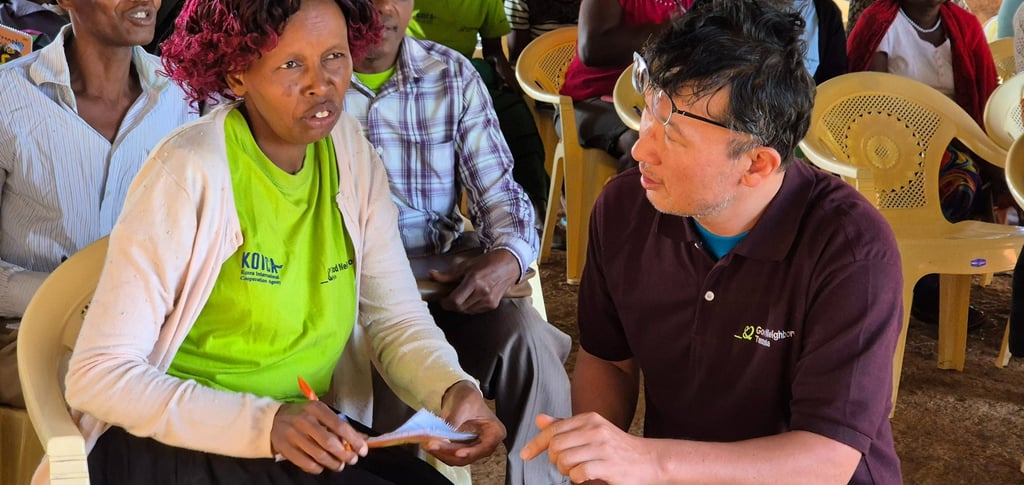

Introduction to Eco-Friendly Farming Initiatives
In an inspiring initiative for sustainable agriculture, the Kirurumwe Farmers Cooperative Society (KFCS) recently held an advanced training on eco-friendly farming from August 30 to September 1, 2024. Led by Mr. Changpyo Lee, Chief Manager of Good Neighbors Global Impact Foundation (GNGIF), and supported by Good Neighbors Kenya staff, this training session was part of a long-standing project aimed at empowering KFCS farmers with sustainable and cost-effective farming techniques. The training, held at the Kevote factory, was designed to provide farmers with hands-on knowledge, assess progress, and address the challenges encountered by those practicing eco-friendly methods.
The eco-friendly farming methods taught are rooted in four core principles—zero tillage, mulching, composting, and utilizing indigenous microorganisms. This approach fosters soil health, conserves natural resources, and minimizes environmental impacts. By using natural inputs, farmers not only reduce their expenses but also protect their coffee trees and the surrounding environment from the adverse effects of synthetic chemicals. This training marks the fifth session in a series that began in 2023, and for many KFCS farmers, the benefits of these practices are becoming increasingly evident.
Empowering Farmers with Advanced Techniques
The advanced training built upon foundational skills introduced over the past year. Farmers were engaged in hands-on workshops demonstrating the preparation of essential eco-friendly solutions such as Calcium Phosphate for pest control and IMO3 (Indigenous Microorganisms) for disease management. They also explored effective composting methods, integrating local resources to create rich soil environments while minimizing chemical use. This focus on self-sustaining practices allows farmers to achieve healthier crops at a lower cost, ensuring coffee trees thrive without reliance on synthetic inputs.
Farmers’ Reflections: Successes and Challenges
Farmers shared their insights and experiences with eco-friendly methods, noting substantial benefits, including lower production costs and healthier coffee trees. However, challenges remain, particularly in sourcing sufficient materials for mulching and maintaining the steady application of eco-friendly solutions. Farmers also highlighted the time-intensive nature of preparing some organic inputs, a learning curve that requires patience and support.
The interactive nature of the training provided a platform for farmers to discuss these challenges and collaborate on solutions. For instance, they discussed alternative materials for mulching, including crop residues, and strategies for cost-effective composting. Farmers also learned techniques for disease control through IMO3 application, alongside preventive measures using FPJ (Fermented Plant Juice) to reduce future outbreaks.
Seedling Propagation Innovation
A particularly exciting segment of the training introduced farmers to a new method for coffee seedling propagation. This innovative approach involves using simple, locally available materials to encourage root growth on a coffee branch while it remains attached to the parent tree, later planting it directly in the ground. Farmers were enthusiastic about applying this technique, which offers an affordable and efficient means to expand their coffee cultivation.
Mr. Lee's Visit to Farmers’ Fields: Encouraging Eco-Friendly Champions
In addition to the training, Mr. Lee made visits to various farms to witness firsthand the impact of eco-friendly farming techniques. His interactions with the farmers were a powerful testament to the program’s positive influence. He observed that many farmers were successfully integrating mulching, composting, and natural pest control solutions. Some farmers had even begun to share their solutions with others, spreading the benefits of eco-friendly practices throughout their communities. This farm tour allowed Mr. Lee to provide personalized feedback and recognize the farmers’ efforts, reinforcing the cooperative's commitment to sustainable agriculture.
Recognizing Farmer Efforts and Evaluating Outcomes
The training culminated in an evaluation to measure the progress and impact of eco-friendly practices on yields and plant health. Of the 31 farmers who submitted data, 64% had already adopted eco-friendly techniques in 2023, with an encouraging 87% practicing eco-friendly methods in 2024. Notably, eco-friendly farming was seen to improve yields over time, as farmers projected higher output in the upcoming season.
A Vision for Sustainable Farming
KFCS and its partners continue to support farmers on this eco-friendly journey, addressing challenges such as resource availability, disease management, and consistent application. Moving forward, regular farm visits and ongoing guidance from Good Neighbors Kenya will empower farmers to achieve sustainable, resilient coffee production.
This training reinforces KFCS’s commitment to environmentally responsible farming while uplifting farmers' livelihoods. As more farmers embrace these practices, KFCS envisions a thriving community that not only nurtures the environment but also enjoys increased yields and profitability from high-quality, sustainable coffee.
Together, KFCS and its dedicated members are setting a benchmark for eco-friendly coffee production in the region.
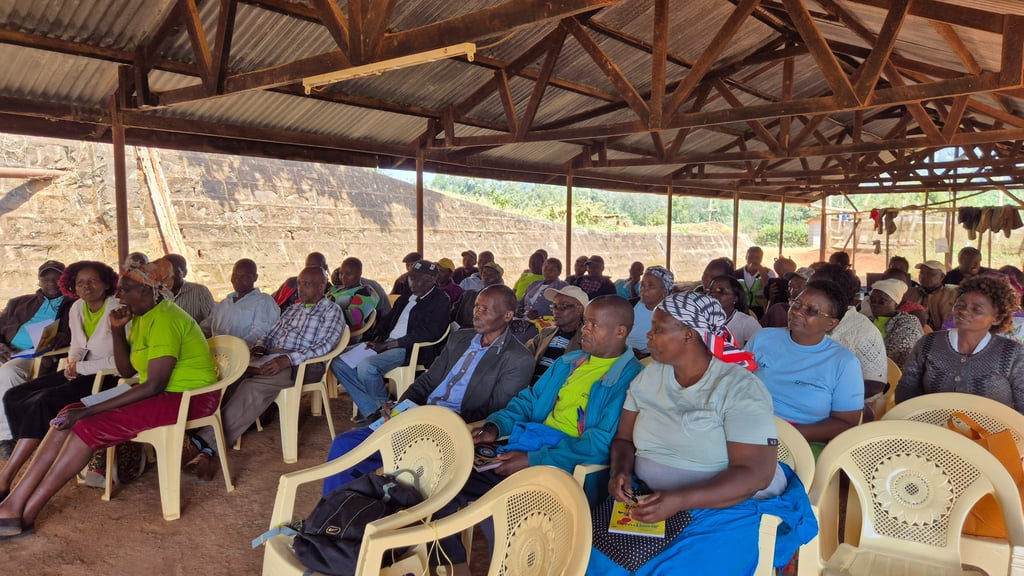

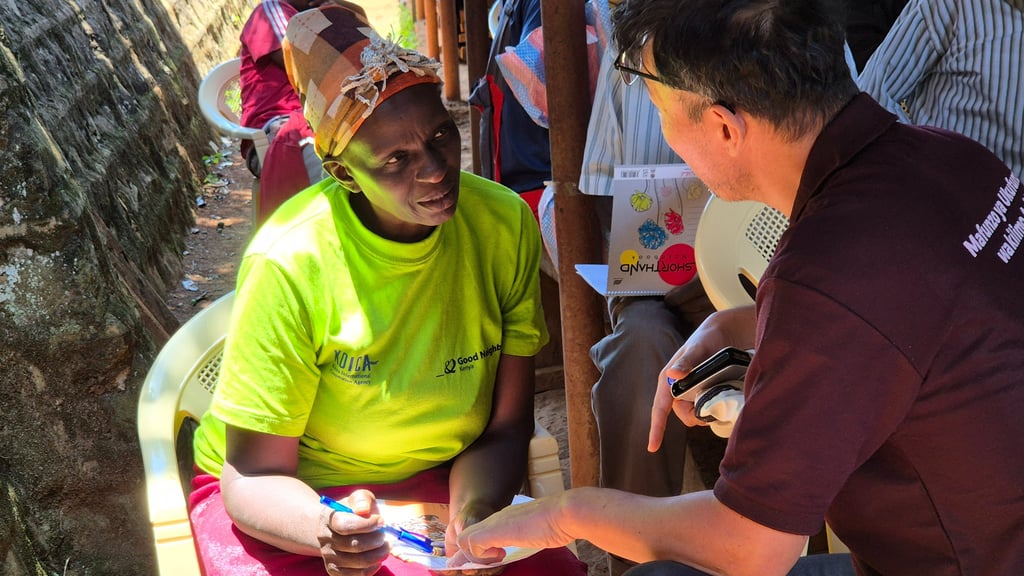

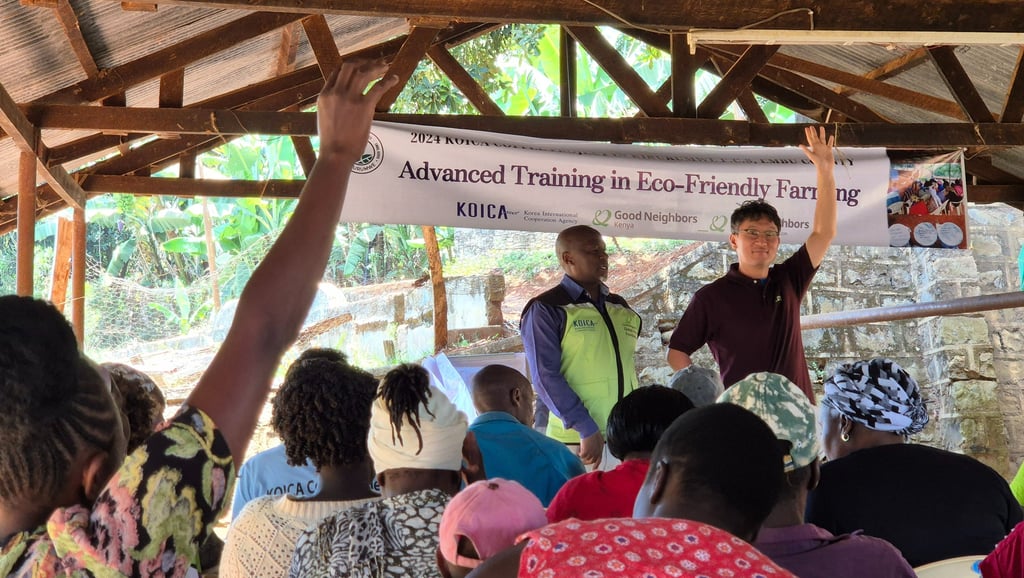

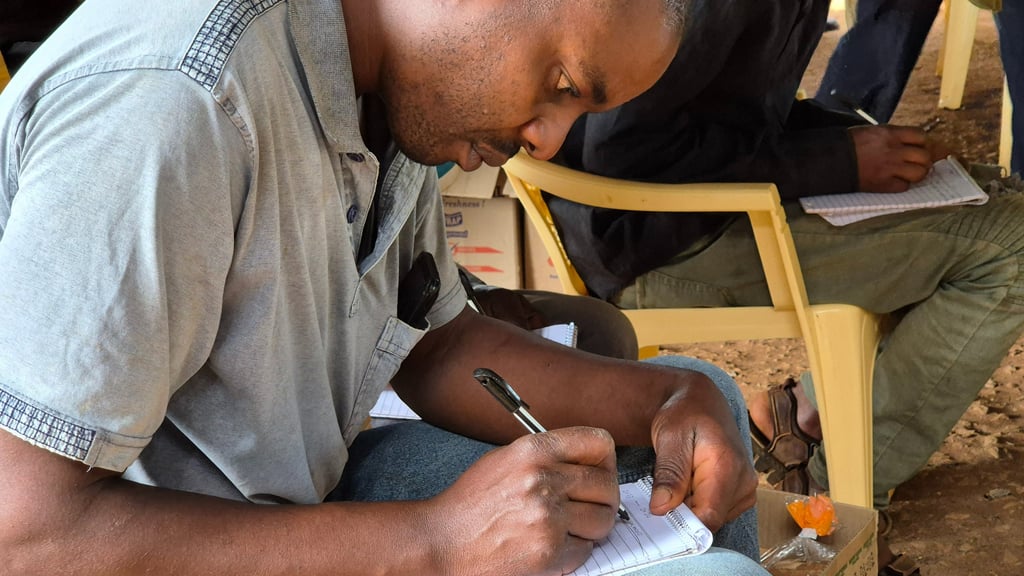

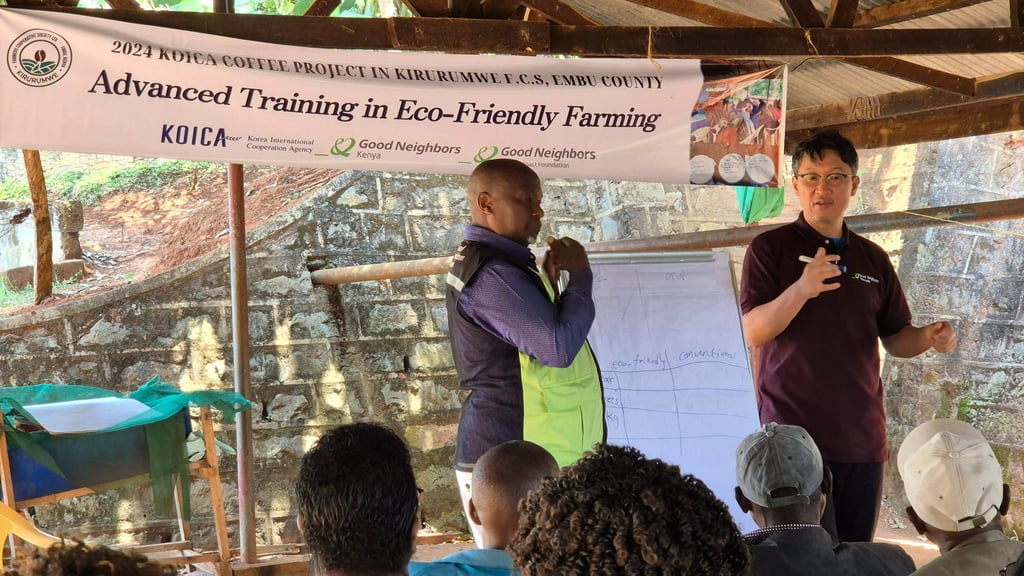

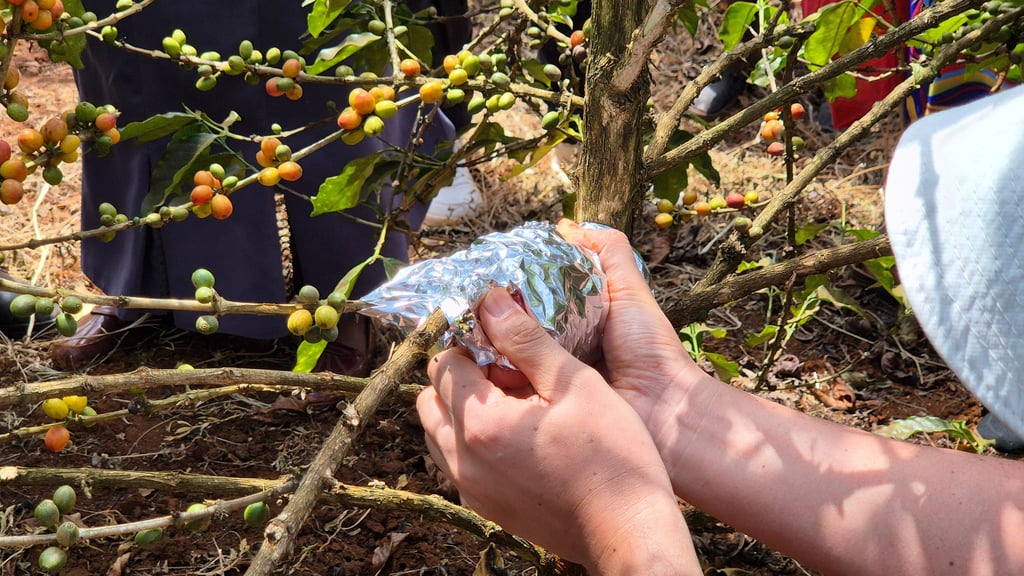

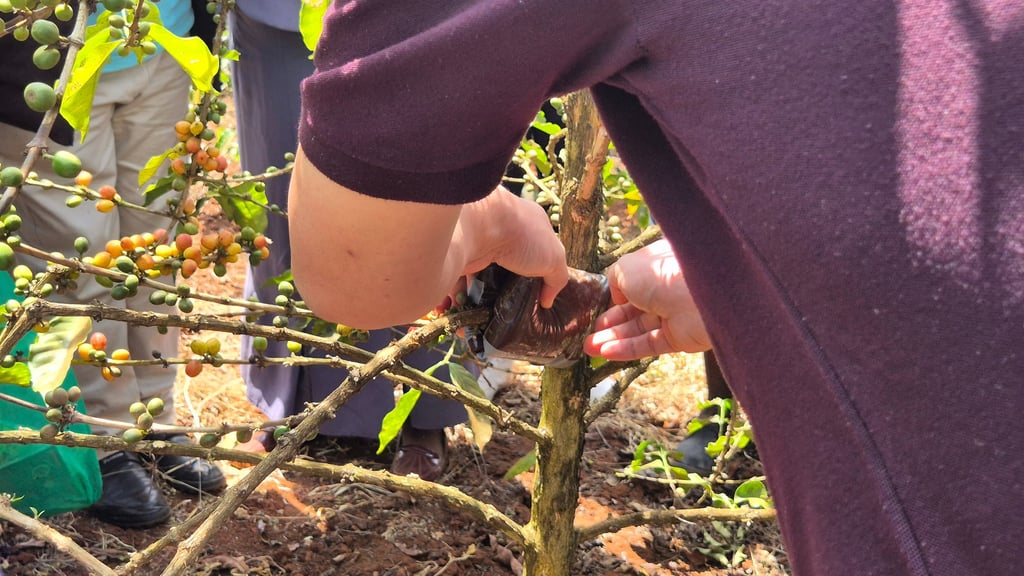



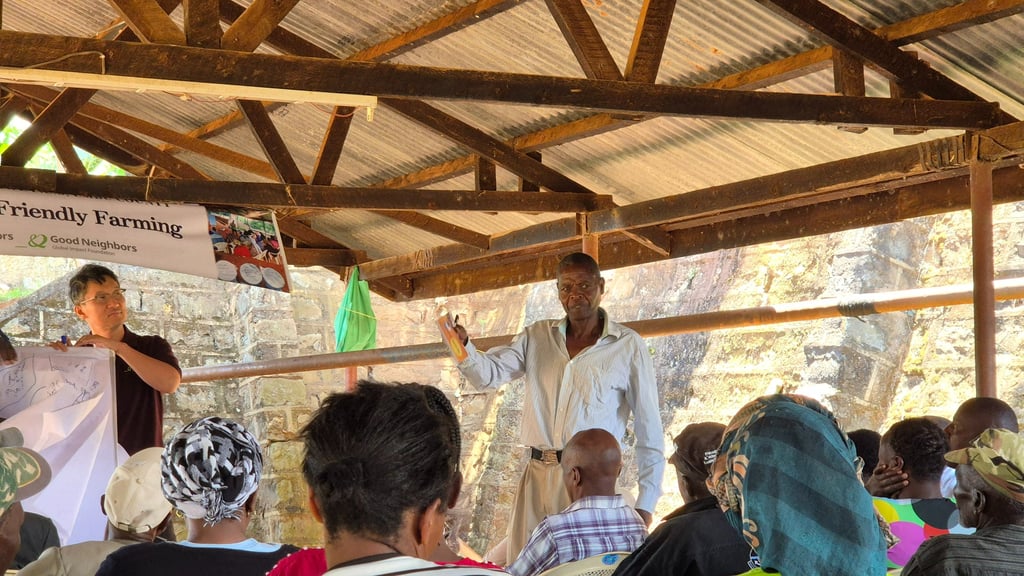

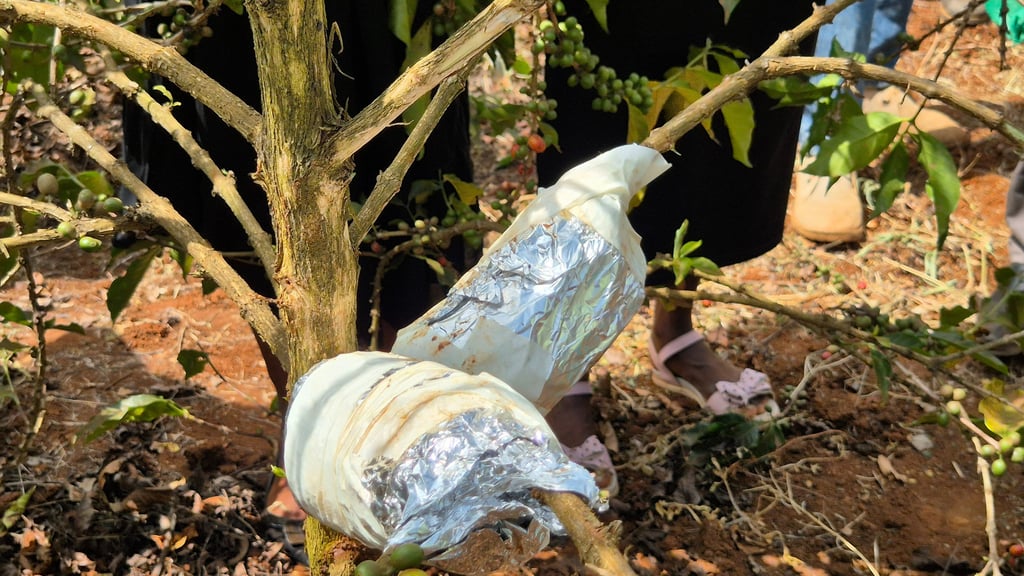

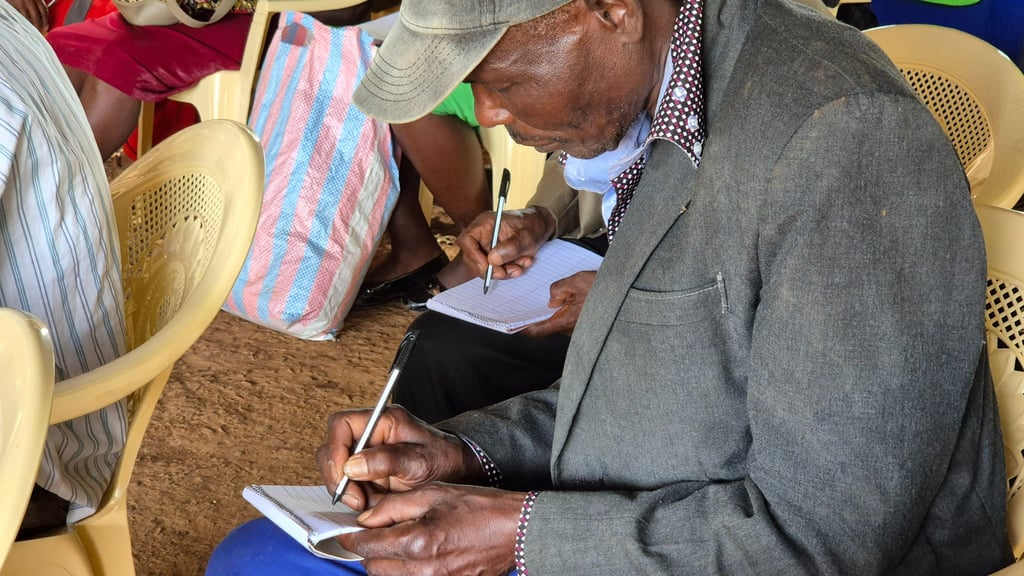

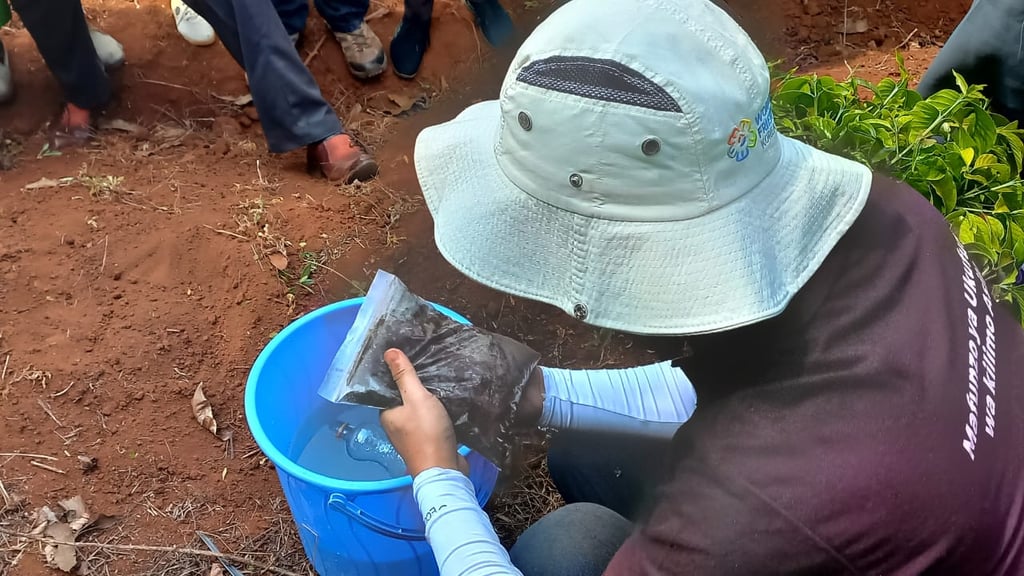

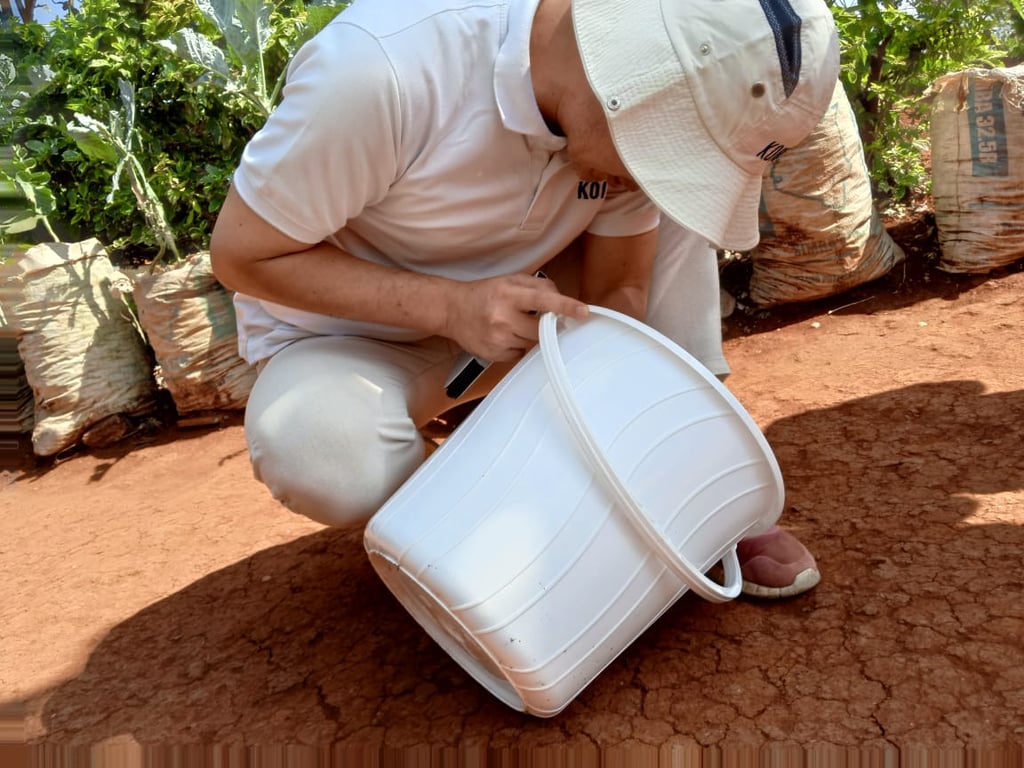

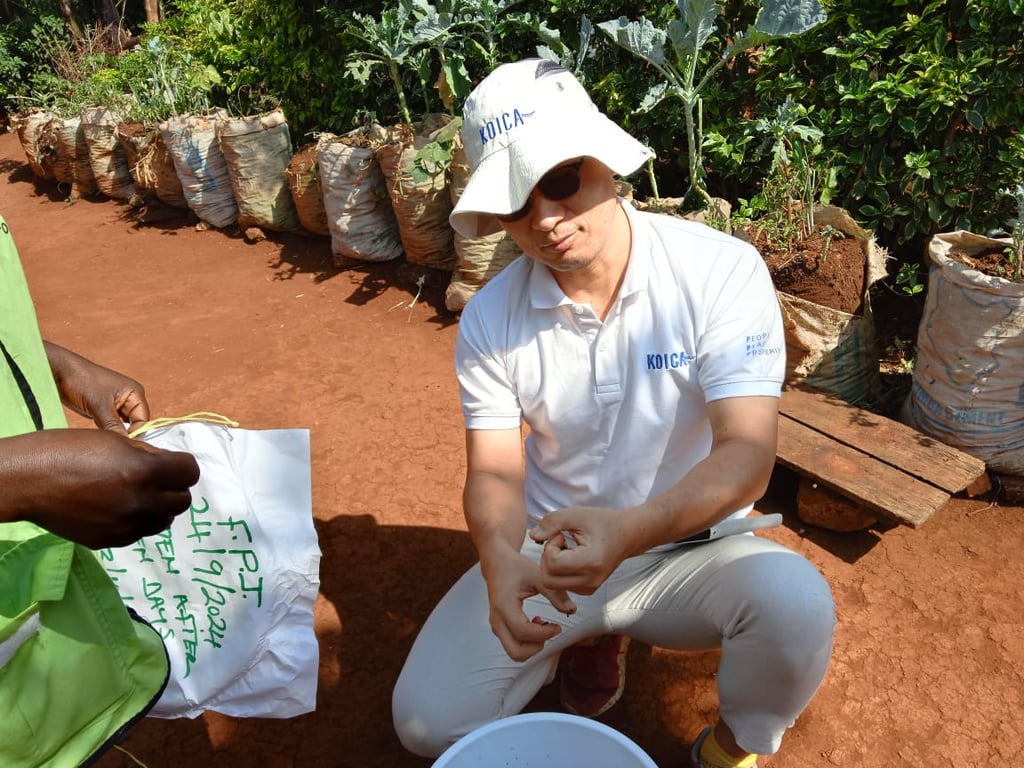

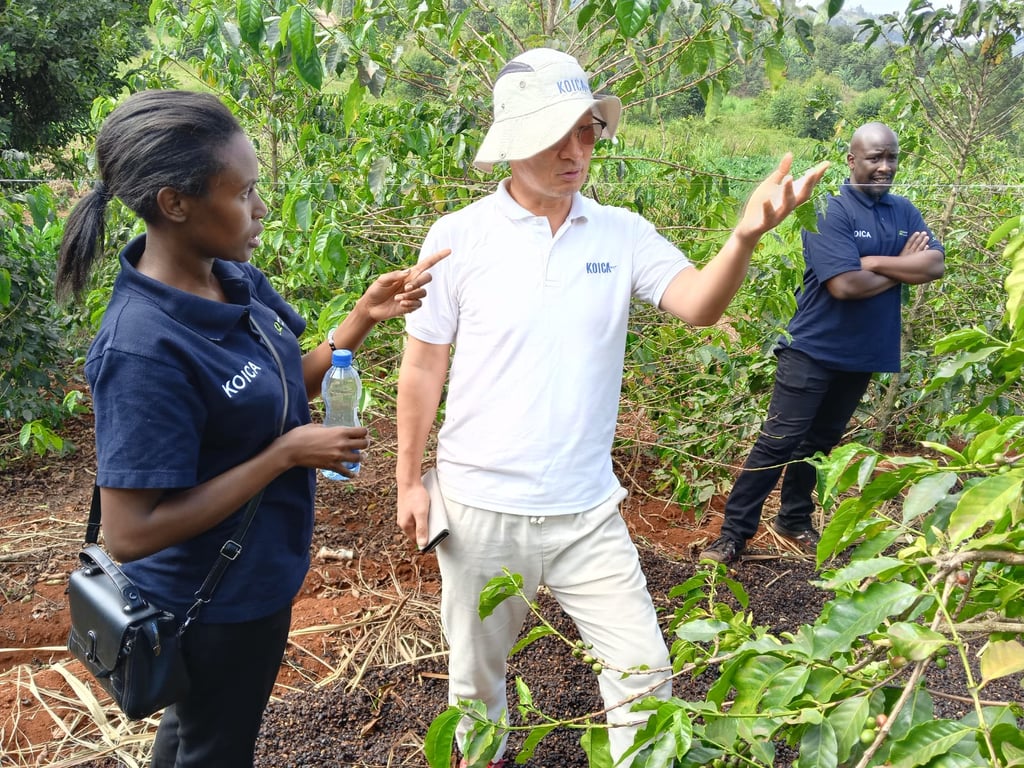

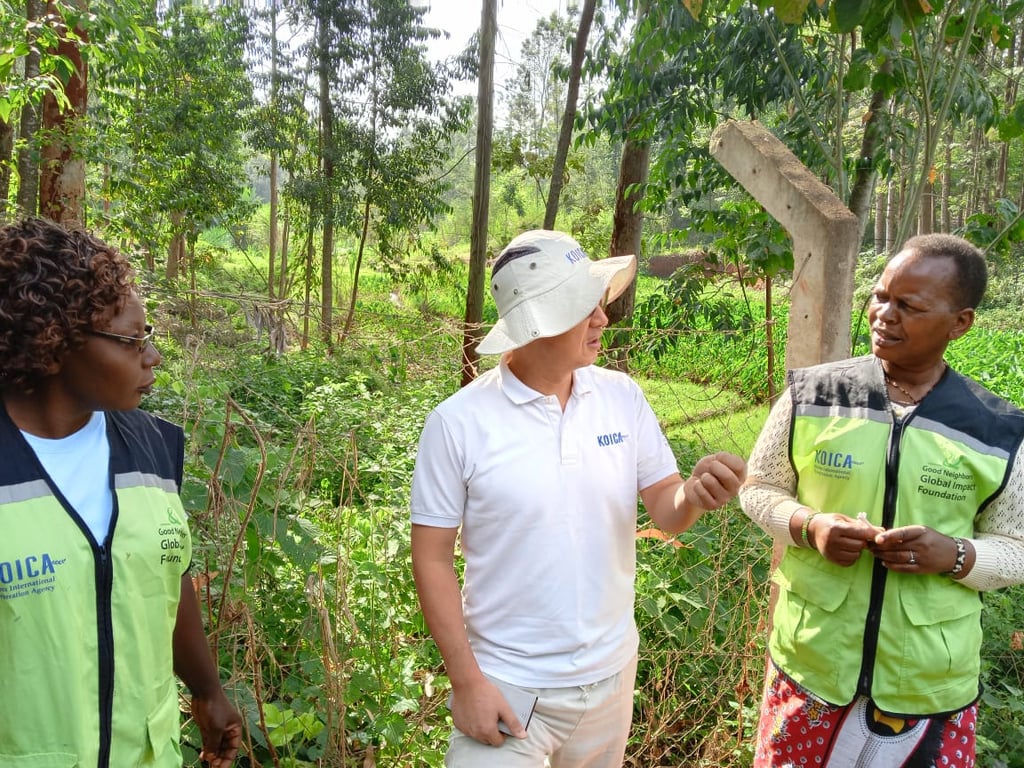

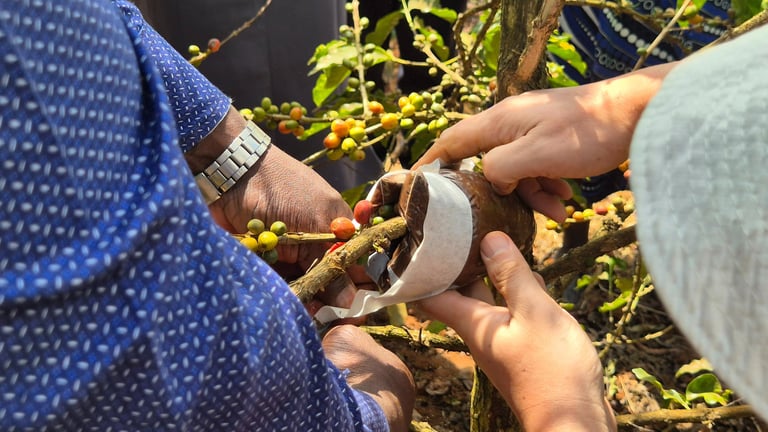



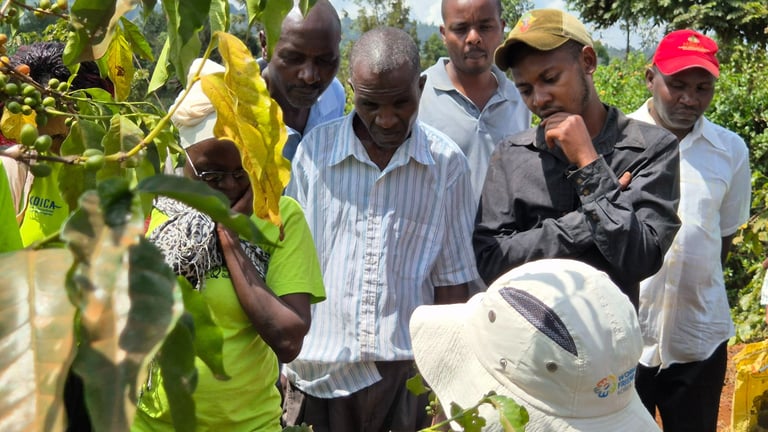







Advanced Eco-Friendly Farming Training
"Empowering Farmers, Protecting the Environment, Elevating Coffee Quality Through Sustainable Practices"
